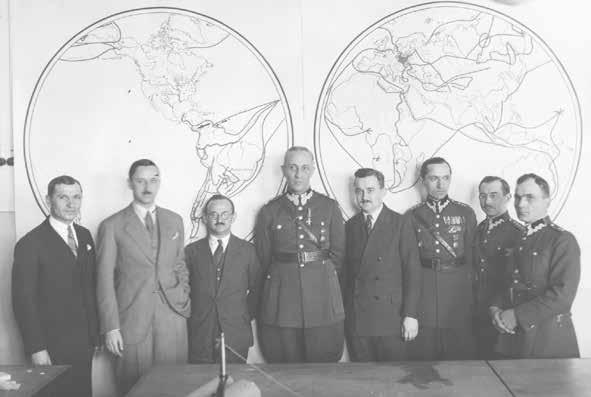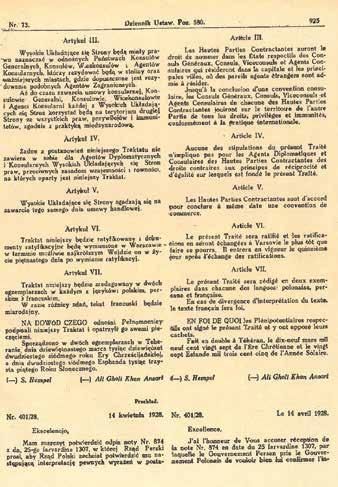
1 minute read
Foreword
It is with pleasure that I commend to the attention of the readers this work by Aleksander Wasilewski on Polish-Iranian diplomatic relations in the inter-war period. I am grateful to the Author for his efforts of researching Polish and Iranian archives, conducting a series of scientific consultations and finally sharing his findings in the form of this well-structured, scientifically sound publication. Given the very limited bibliography, this first comprehensive approach to the subject is of exceptional interest.
Relations between Poland and Iran go back over five hundred years. Against this background the inter-war period is of particular importance. The foreign policy of the newly re-established Republic was focused on securing its vital interests-stabilizing the southern, eastern and western frontiers, building and reinforcing alliances, establishing diplomatic relations and setting up a network of diplomatic and consular missions. Persia was considered a country whose geopolitical and economic importance required our permanent diplomatic presence. Centuries of friendly contacts and the fact that Persia had never recognized the partitions of Poland added a special significance to bilateral relations.
In the first years of independence the new Polish state perceived the necessity to define its identity in foreign policy. In a notable speech delivered in the Sejm (lower chamber of Polish Parliament) in 1926, minister of Foreign Affairs August Zaleski pointed to the republican values that the new state was meant to embody. These embraced the principle of equality in international relations, the rejection of colonial ambitions, readiness to engage in collaboration based on mutual respect of interests and traditions. The same values were invoked in the Treaty of Friendship concluded with Persia in 1927 and entered into force in 1930 – exactly 90 years ago. The present publication, which celebrates this anniversary, illustrates the realities of the years 1918–1939 when our renewed relationship was assuming new shapes and scales, contributing to existing legacies and setting the scene for imminent developments of the II WW – yet another period which bound our two nations.
Tehran, June 2020
Maciej Fałkowski Ambassador Extraordinary and Plenipotentiary of the Republic of Poland to the Islamic Republic of Iran










